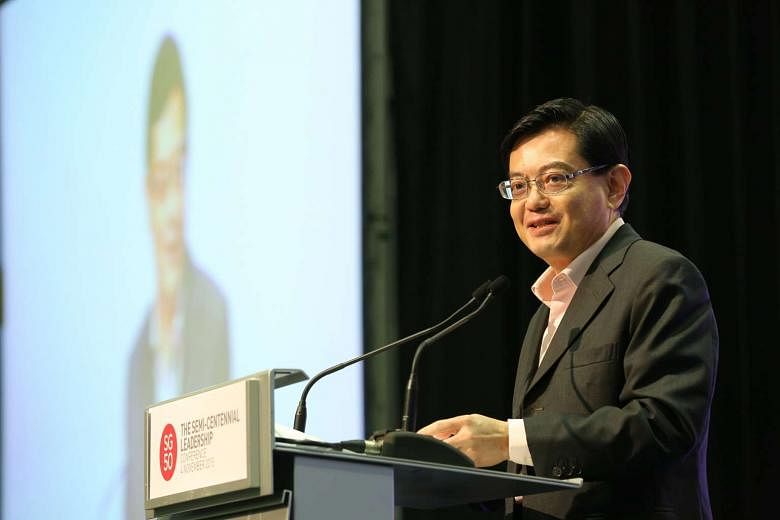Singapore's upcoming Budget will need to strike a balance between addressing short-term needs and looking at the medium term and structural policies, Finance Minister Heng Swee Keat said, citing a key takeaway from the Group of 20 (G-20) meeting in Shanghai.
"What came across very strongly was how everybody was talking about the need for good structural policies and how you need to focus on the medium term. But at the same time, even as we do that, we also need to think about the short-term needs. So it's that balance that we need to calibrate very carefully," he added.
Speaking to Singapore media as the G-20 meeting of finance ministers and central bankers wrapped up yesterday, Mr Heng said the broad shape of the Budget - which he will deliver for the first time on March 24 - has emerged, thanks to input from the business associations, unions, the public and focus group discussions.
"So I have a much better feel of what's happening. At the same time, we have also been looking at some of the things we need to do not just in the next one or two years, but also things we need to do when we consider our future economy," he said.
"So it will be a set of things we have to think through quite thoroughly - how do we sequence these sets of measures?"
Asked if there would be any "hongbao" to look forward to, Mr Heng said he would provide the full details on Budget Day.
He was also coy when asked if the Goods and Services Tax (GST) threshold might be lowered to boost tax revenue, saying he has received wide-ranging and contrasting feedback on such a move.
"So we have to make a judgment as to what's appropriate for the Singapore economy and in particular for employment," Mr Heng added.
Tax experts and economists have proposed a tweak to the GST threshold to help offset the projected increase in social spending. In Singapore, only companies with annual turnover of $1 million and above are required to register for the GST.
Being prudent and appropriate has served Singapore well and gives the country room to make changes when necessary, Mr Heng said in response to a question that the Republic, despite its slowing growth, is seen to be relatively stable amid the global uncertainty, and is held up as an example.
Also, Singapore has been restructuring its economy every few years, he said, citing the 30-member Committee on the Future Economy, which he chairs, as another important aspect to "work on the changes needed in the coming years".
"This particular set of G-20 meetings has been very helpful in understanding the global environment and the changes others are taking and how in turn these would affect us and how we can make use of the opportunities," he added.
"So these are medium-term changes that we must keep an eye on."

